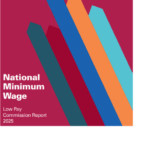
Latest provider statistics show PVI sector crucial to expansion
The Department for Education (DfE) has published its latest Childcare and early years providers survey: 2024, detailing statistics on the characteristics of early years providers in England.
The annual survey provides information about early years provider characteristics, the number of childcare places and children attending provision plus details relating to staffing (including qualifications) and fees.
Providers
The survey revealed that the number of providers has dropped in the last year from 56,400 to 54,700 in 2023 which equates to a fall of 3 per cent. While the number of group-based providers did not change the fall in the number of providers reflects a 7% drop in childminders. The split of providers is as follows:
- 21,200 group-based providers,
- 9,700 school-based providers
- 23,800 childminders.
Places
The number of registered childcare places in England now stands at 1,602,500 compared to 1,558,1000 places in 2023, a rise of 3%. Childcare places were split as follows:
- 1,100,100 group-based places,
- 359,200 school-based nursery places
- 143,200 childminding places.
The survey showed that between 2023 and 2024 there was an increase in the number of registered places in school-based providers, 3% and a 5% increase in group-based providers. This was against the number of registered childminder places falling by 13%.
In addition, the data found a correlation between areas of deprivation and the number of providers that are school based. In 2024 the number of school-based providers in the most deprived areas was 28% compared to the 14% of school-based providers in the areas that were less and least deprived.
The data also revealed that there were fewer childminders in the most deprived areas (35% ) in contrast to other areas which was between 44 and 47%. The proportion of group-based providers ranges from 36% in the most deprived areas to 42% in the least deprived areas.
The number of group based providers that are part of a chain is up from 33% to 34% and 81% of private providers that open during school holidays open on average for 10 hours per day.
Fees
The recent early years provider survey has revealed that the mean hourly parent-paid fee for children under two has increased from £6.05 in 2023 to £6.60, an increase of 8.3%.
Mean hourly fees have also increased sharply for parents of children aged two with an increase of 7.5%. In 2023 the mean hourly fee was £6.07 which the survey reveals have risen to £6.56.
Additionally, the mean hourly rate charged by providers for preschool children aged three and four increased from £5.90 in 2023 to £6.30, an increase of 6.3 pe cent.
For group-based providers 76% of overall costs are made up of staff costs.
Purnima Tanuku OBE, Chief Executive of National Day Nurseries Association (NDNA) said: “This latest early years provider survey demonstrates how crucial private and voluntary providers are in delivering the ongoing expansion for parents. They deliver flexible, year-round high quality education and care to more than 1.1 million children.
“Contrary to usual assumptions, private and voluntary providers care for as many children with special educational needs and disabilities as school-based providers, with an average of five children per setting.
“It’s not a surprise to see that fees continue to rise for parents. As nurseries are faced with additional staffing costs from April, unfortunately they will have no choice but to have to keep adding more to their fees so they can remain sustainable.”
Staff
There was a 6% increase in the total number of paid childcare staff between 2023 and 2024 which saw numbers grow from 347,900 to 368,100. Staff numbers grew by 7% in both school-based (4,000) and group-based providers (18,600) while the number of childminders and childminding assistants declined by 7% (2,300).
- 277,900 staff in group-based provision
- 59,800 staff in school-based provision
- 30,400 childminders and childminding assistants.
The number of childcare apprentices increased from 2023 to 2024 by 17% (4,500) of which almost all were employed group-based providers (28,900).
Additional findings from the survey include:
- Group-based providers are significantly more likely to employ childcare apprentices than school-based providers
- Around two-thirds of childcare apprentices are studying at Level 2.
- Around 30% of school-based providers and group-based providers employ volunteer staff.
- On average, providers had more paid childcare staff joining than leaving in the previous 12 months.
- Turnover rates for paid childcare staff in 2024 were twice as high in group-based providers (16%) as school-based providers (8%).
- School-based provider staff are estimated to have a median hourly wage of £17.95 per hour compared with £12.25 per hour for group-based provider staff.
SEND
Since 2018 there has been an increase in the proportion of providers who are looking after at least one child with SEND, however the proportions for 2023 and 2024 remained the same. On average, more children with SEND attend school-based and grouped-based providers compared to childminders. In 2024 the providers split average number of children with send
- School-based providers – 5 children with SEND (an estimated 14% of their registered places)
- Group-based providers – 5 children with SEND (an estimated 12% of their registered places)
- Childminders had the lowest proportion of children with SEND (an estimated 6% of registered places).
- England
Similar Articles
Government research shows school-based nurseries are not delivering flexible provision to its communities

One in seven childcare professionals paid around minimum wages


